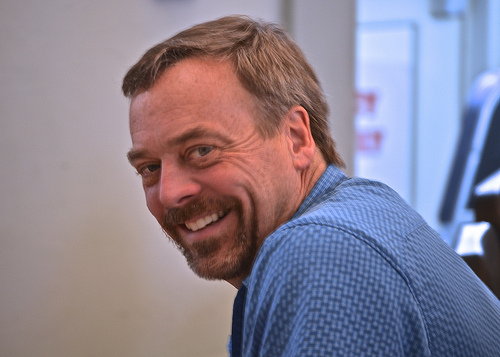
Engaging Souls in Transition: Inviting University Students into the Formational Practice of Worship
By Dorothy Bass
(with contributions from Rev. Eric Peterson and Dr. Benjamin Brody)
As a church musician in Spokane, Washington, Dr. Benjamin Brody wears two hats. One identifies him as a professor of music and director of chapel worship at Whitworth College, a liberal arts college affiliated with the Presbyterian Church (USA). He dons the other on Sunday mornings, when he leads the music of Colbert Presbyterian Church, a thriving congregation in the suburbs.
With Colbert’s pastor, Rev. Eric Peterson, Brody developed a project that bridges the two settings while also addressing a need they both believe is widespread in American Christianity: young adults’ relative lack of interest in liturgical worship in congregational settings. Whitworth students have many opportunities for formation through interaction with their peers—six to seven hundred are in campus Bible studies, for instance—and many voluntarily attend chapel twice each week and area nondenominational churches on Sundays. In this context, two of the qualities that are crucial to congregations such as Colbert Presbyterian can be missing from the college religious experience (and thus possibly from the futures of graduates as well): bonds with those who belong to other generations, and deep, knowledgeable engagement in ordered worship that follows traditioned patterns shaped by Word and Sacrament.
In response to this perceived lack, Colbert Presbyterian’s team is fielding a year-long experiment designed to help young adults discover the benefits of regular participation in ordered, weekly worship. A crucial benefit is formation; participating in worship, over time, can shape who we are. When making this point during the team’s presentation at the Summer Seminar, Eric Peterson shared a story that discloses some of his own commitment to worship.
My paternal grandmother was a pioneer among women in the early 20th century, who was ordained in the Assemblies of God, and she organized at least one new church in Montana, and served others. She was a fiery pentecostal who had a deep faith, evangelical fervor, and a profound prayer life. I grew up around her, frequently overhearing her saying, “Thank you, Jesus.” She prayed it continually throughout her days, over a period of many years, hundreds upon hundreds of times. Thank you, Jesus. Thank you, Jesus. Thank you, Jesus.
In her later years, she was afflicted with Alzheimer’s Disease, creating significant disorientation to her, and severely impairing her memory. I believe it was during the last year of her life, when she was quite disabled with dementia, that she was asked to help lead a worship service with her son-in-law who was the pastor of a church that she also had been serving with him for some years. I remember being quite anxious at the thought of her saying anything in public, her mind being so tangled to the point that she would say and do things that didn’t make any sense, and which could be quite embarrassing.
That day, during morning worship, my uncle called on her to lead the congregation in prayer. And the moment she lifted up her hands, and opened her mouth, was the moment when I felt like I had my grandmother back. Her prayer was absolutely cogent, beautiful, and of the Spirit. It was as if her illness had been suspended as she prayed. And it made me think that despite all the ways mental illness had diminished her, whatever part of her brain that is associated with prayer, seemed to be altogether untouched by the disease. Her praying self, formed through a lifetime of both simple and complex prayers, spoken in English and in other tongues, remained intact. It was the last, best part of her, and the part that was untouchable to the disease that eventually ended her life. I wasn’t there when she died, but I’m pretty sure that among her last words were, “Thank you, Jesus.”
Through their project, Brody and Peterson hope to teach and encourage young adults in similarly life-shaping participation in the practices of Reformed worship as it is creatively and liturgically embodied at Colbert Presbyterian Church. To this end, the congregation is inviting ten to twelve students to join a process that would span the school year. Each would be paired with a mentor from the congregation and drawn regularly into preparation for and experiences of Sunday worship. Monthly, students and mentors would meet with the pastor and musician for a meal and discussion about some aspect of worship. For instance, one month might focus on confession of sin in worship. The pastor would share the theological rationale for including confession, the musician might discuss how the song choices we use prepare us for confession, and an elder might share works of art that intersect in some way with confession. A conversation would follow about different ways of confessing sin in corporate worship, structured not only to share “official” interpretations with the students but also to listen to their perspectives, concerns, and suggestions.
“The goal of the project is both outreach and education,” Ben Brody notes. “We seek to attract and engage students deeply in the life of our congregation, educate and immerse university students in worship practices, and learn from students as we help them discover the contributions they have to make to our worship life.”